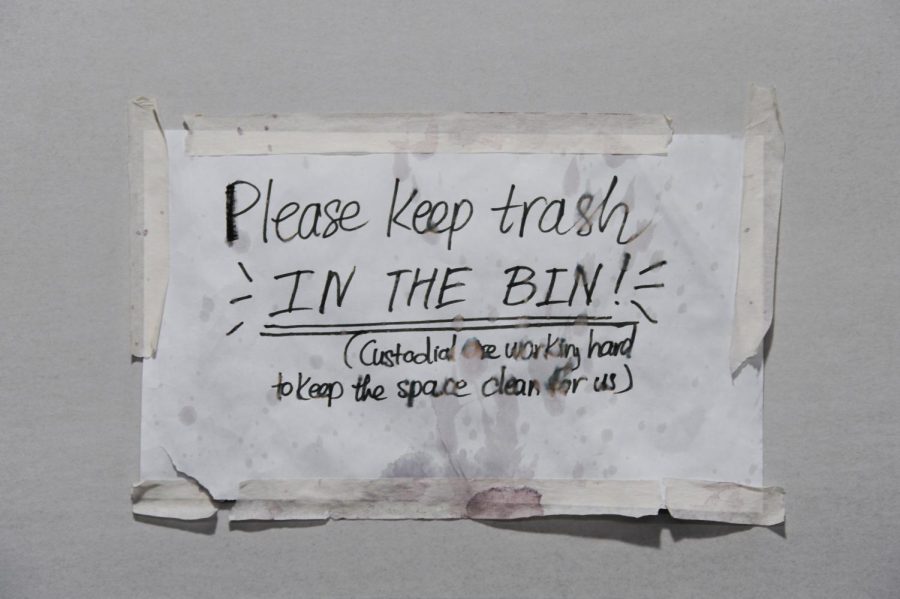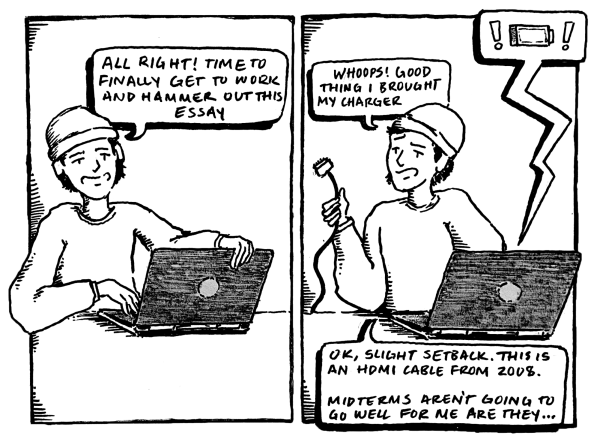Students Must Take Responsibility For Dorm Cleanliness
Messy dorms pose health and safety hazards.
Perishable food left in the kitchen sink. Trash in the lounge. Hair and soap scum coating the bathroom floor. Scenes like these are disgustingly familiar for many at Oberlin, all because some students lack the proper respect for hygiene. It’s understandable that this would be the case: this is a lot of people’s first time living alone, and being tidy often comes second to things like classes, extracurriculars, and social events. But all across campus, a dominant complaint is the dirtiness and messiness of public spaces in dorm buildings, and it really shouldn’t be the necessary evil of college life that many have deemed it.
Keeping one’s residence hall clean is an obligation of every student who lives there. There is an implicit contract to be clean governed by the fact that the housing is owned by the school, but the Office of Residential Education actually puts this in more explicit terms on the Oberlin website, declaring that “students living in College-owned housing are required to keep the facilities in good condition.” This is especially true for public spaces like lounges and bathrooms, which everyone has an equal right to use. Beyond just being respectful to the other people inhabiting your dorm, being overly messy and not cleaning up can be a health and safety concern. Things are hard enough with COVID-19, so even unintentionally making your living quarters into an area where students can get sick is unconscionable. A final important consideration is the custodial staff who have to clean up the messes students leave behind. Their job is difficult enough as it is, but when students consistently don’t even make a basic attempt to clean up, the mess builds up and becomes harder and harder to completely remove. Not only does this make residence halls gradually decline in quality and cleanliness over time, but it can adversely affect custodial workers, which just isn’t fair.
Perhaps all of this seems like common sense, but I’ve seen in my own dorm — and heard in other students’ horror stories about their living conditions — that students aren’t fully considering the impact their actions have on others. Fellow students begin to hate spending time in their residence halls or even fall ill. Custodians work day in and day out for naught. Something needs to change, and it should start with amending the manner in which custodians and dorm residents communicate.
In my experience this semester, it seems that when members of the custodial staff have concerns, they have two main options: put up a sign of some sort or implore a Resident Assistant in the building to send out an email to the residents. From what I’ve seen, these do not work. I wouldn’t be so bold as to claim that no one reads signs or emails, but they are just too easy to ignore or to skim and miss important information, especially for busy college students who are just trying to take a shower before their 9 a.m. class or reheat a pizza from last weekend. It’s becoming clear that there needs to be some mechanism for in-person, dorm-wide meetings to take place as necessary.
When it comes to the effective dissemination of key information, face-to-face communication is superior. First of all, although reading is quicker, in most cases it’s easier to retain information aurally than to peruse a block of text with the same details present. In a meeting, people are forced to sit and listen to the whole message, so it’s harder to miss important details. There’s a sense of exigency that comes with a dorm-wide meeting that just isn’t there with other, more discreet forms of communication, and cleanliness in Oberlin’s residence halls is certainly an issue that merits that kind of attention. Additionally, the open discussion that is facilitated by a physical gathering allows for questions to be asked and policies to be explained. One of the best ways to ensure that people follow the rules is to ensure that they understand why those rules are in place. In my dorm, the custodians wanted the private bathroom doors to be propped open when not in use so that water on the ground from the showers wouldn’t pool. A sign was put up, and at first people kept the doors propped open, but within two days the request was all but forgotten about. The problem was not with students trying to foil the custodial staff at every turn — people were just absent-minded and perhaps didn’t realize that there was an important reason behind this policy. Furthermore, having the ability to ask questions often makes the act of policy-making feel less authoritative and one-sided, thus making students more likely to comply.
Naturally, the hope is that people will have the adult intuition to keep things relatively clean, but for dorms where cleanliness is a consistent issue, those who oversee RAs should, in the future, empower them to call these meetings to voice the concerns of the custodial staff, their own concerns, and also concerns residents themselves have. It may be inconvenient, but ultimately, it’s a matter of being considerate and healthy, which should always be a priority on a college campus.



